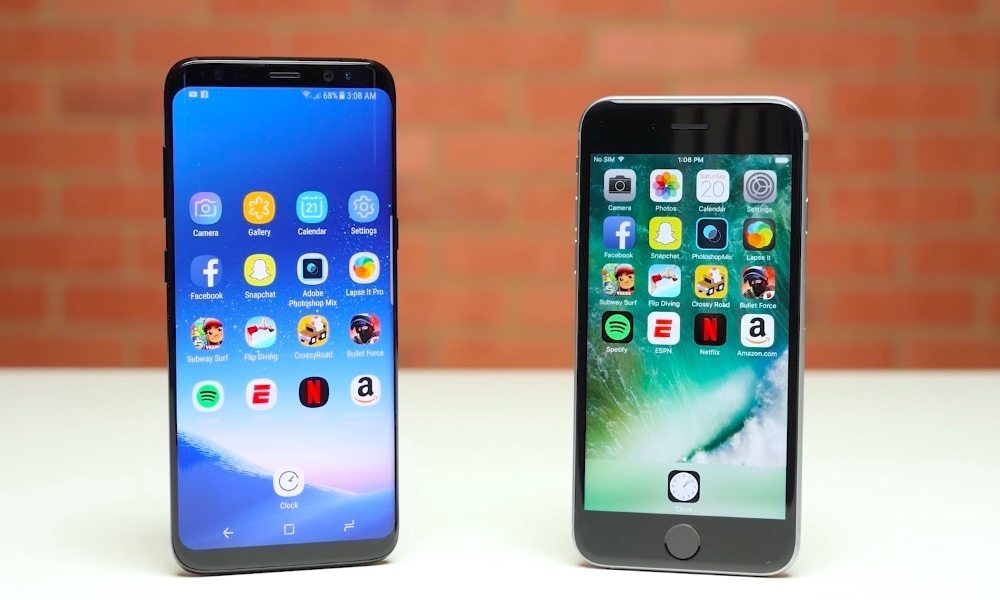2-Year-Old iPhone 6s Beats Galaxy S8 in New Speed Test

Toggle Dark Mode
The Galaxy S8 is Samsung’s latest and greatest, and there’s no doubt that it’s an excellent smartphone. Despite its impressive benchmark specs, however, the Galaxy S8 was handily beat by an iPhone 7 in a real-world speed test last month.
Sure, being beat by an aging Apple smartphone may have made the Galaxy S8 look bad, but here to add some extra insult to that injury is yet another speed test. This time, YouTuber PhoneBuff pitted the newest Samsung flagship against the two-year-old iPhone 6s — which, in theory, shouldn’t even be a competition. How did the Galaxy S8 fare? Well, watch the video below and see for yourself.
Even though the Galaxy S8 ultimately lost to the iPhone 6s, the results were a bit closer. While the Galaxy S8 opened smaller apps faster than the Apple device, it lagged behind when opening memory-demanding apps like Photoshop and graphically intensive games. Ultimately, what gave the iPhone 6s an edge was its multi-tasking ability, allowing it to reopen apps in the background much faster than the Samsung flagship — despite the fact that the Galaxy S8 has double the RAM as the iPhone 6s.
So what’s going on here? To be fair, this speed test should really be viewed as an iOS versus Android battle rather than an Apple versus Samsung one. Apple has greater control over its hardware and software, and can optimize them to work in sync with each other. Additionally, Apple places tighter restrictions on app developers, and the result is that iOS apps typically use resources much more efficiently than Android apps do — owing in part to the fragmented and more open-ended nature of the Android ecosystem. This is why older and less powerful Apple devices can typically keep up with (and sometimes beat) the latest and greatest Android smartphones. Speed tests like this are also a testament to the difference between benchmark specs and real-world performance. As you can see, benchmark specs don’t really translate into real-life speed.






